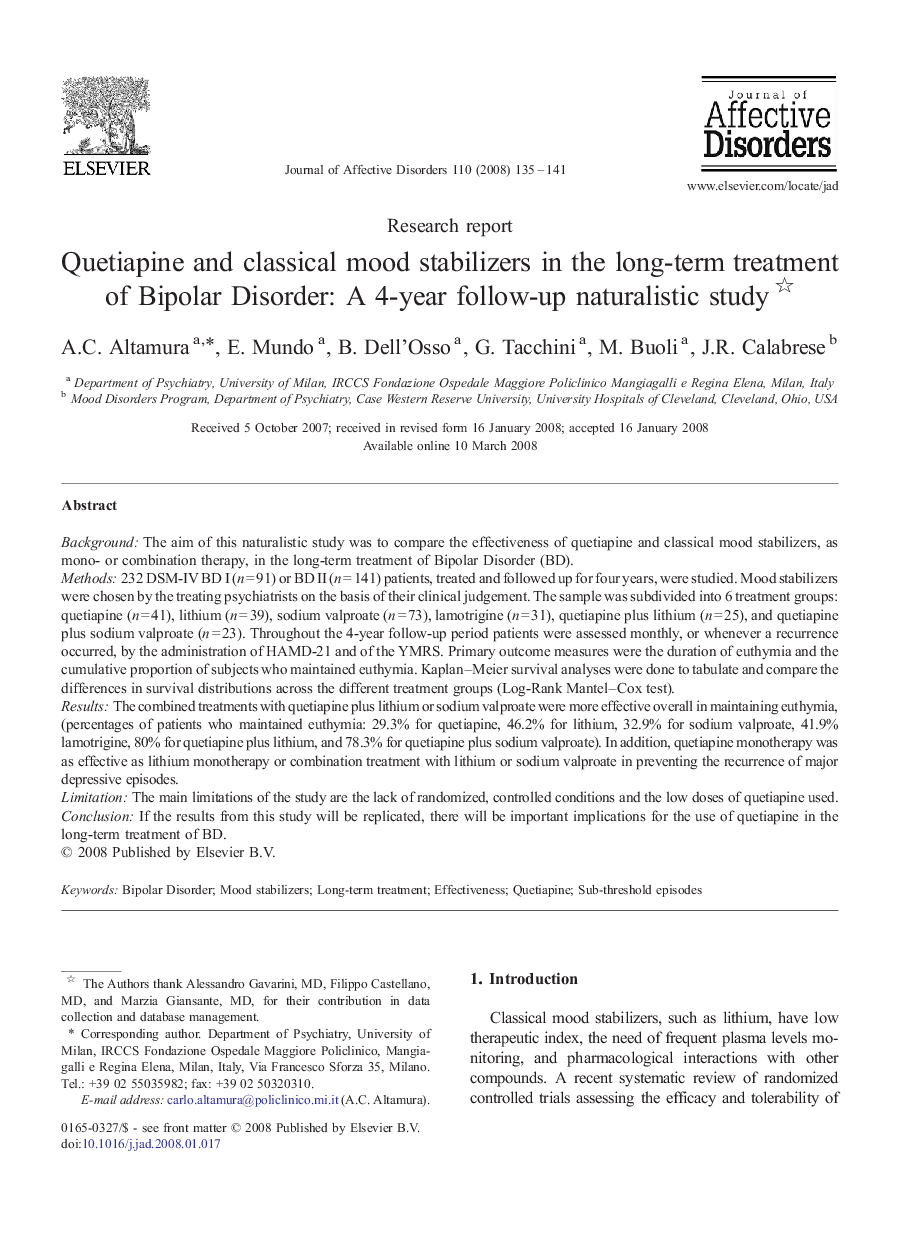| Article ID | Journal | Published Year | Pages | File Type |
|---|---|---|---|---|
| 4187403 | Journal of Affective Disorders | 2008 | 7 Pages |
BackgroundThe aim of this naturalistic study was to compare the effectiveness of quetiapine and classical mood stabilizers, as mono- or combination therapy, in the long-term treatment of Bipolar Disorder (BD).Methods232 DSM-IV BD I (n = 91) or BD II (n = 141) patients, treated and followed up for four years, were studied. Mood stabilizers were chosen by the treating psychiatrists on the basis of their clinical judgement. The sample was subdivided into 6 treatment groups: quetiapine (n = 41), lithium (n = 39), sodium valproate (n = 73), lamotrigine (n = 31), quetiapine plus lithium (n = 25), and quetiapine plus sodium valproate (n = 23). Throughout the 4-year follow-up period patients were assessed monthly, or whenever a recurrence occurred, by the administration of HAMD-21 and of the YMRS. Primary outcome measures were the duration of euthymia and the cumulative proportion of subjects who maintained euthymia. Kaplan–Meier survival analyses were done to tabulate and compare the differences in survival distributions across the different treatment groups (Log-Rank Mantel–Cox test).ResultsThe combined treatments with quetiapine plus lithium or sodium valproate were more effective overall in maintaining euthymia, (percentages of patients who maintained euthymia: 29.3% for quetiapine, 46.2% for lithium, 32.9% for sodium valproate, 41.9% lamotrigine, 80% for quetiapine plus lithium, and 78.3% for quetiapine plus sodium valproate). In addition, quetiapine monotherapy was as effective as lithium monotherapy or combination treatment with lithium or sodium valproate in preventing the recurrence of major depressive episodes.LimitationThe main limitations of the study are the lack of randomized, controlled conditions and the low doses of quetiapine used.ConclusionIf the results from this study will be replicated, there will be important implications for the use of quetiapine in the long-term treatment of BD.
